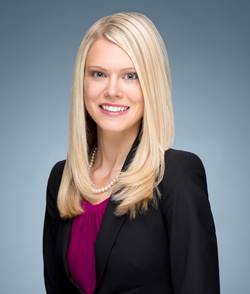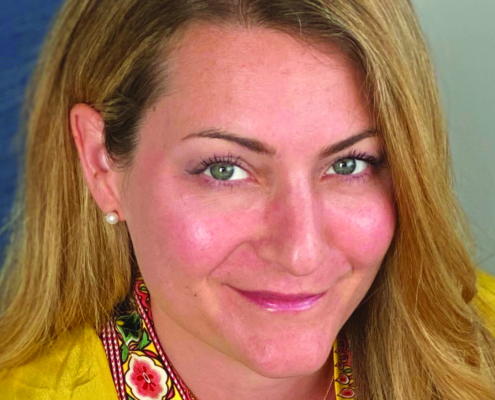Testimony before the Council of the District of Columbia Committee on Health
Budget Oversight Hearing
Submitted by Divya Moolchandani
McClendon Center’s Board of Directors
To the DC Council,
My name is Divya Moolchandani and I am a Board of Director for DC’s McClendon Center, as well as a healthcare consultant primarily serving the Centers for Medicare and Medicaid Services. The McClendon Center helps more than 4,500 DC men and women who come to the Center for primary care needs and psychosocial services, including counseling, community support, housing assistance, art and movement therapy groups, and counseling for those with both mental health and substance use disorders. All of our clients are diagnosed with severe mental illness, and many represent our most disenfranchised community members. Nearly 91% of our clients are African American, ages range from 19 to 96 (33% are 55 or older), and 28% are homeless or staying in shelters. Depressive disorders comprise the #1 diagnosis (39%) followed by schizophrenia and schizoaffective disorders (25%), and bipolar disorders (17%). All of our clients are working toward recovery, independence, and personal success.
I come to you with direct asks. DC’s Department of Behavioral Health (DBH) is planning to cut about $20 million from its budget by imposing service caps on community support and assertive community treatment. Based on our own agency’s data, service caps will not be able to generate the proposed savings, which means that additional services will need to be cut to save the projected amount. I have identified DBH’s proposed changes to save money below, and respectfully request that you reject the service caps to community support and assertive community treatment. As a healthcare professional, I assure you the downstream implications of these service caps and any associated reduction in other services is tremendous. By cutting this significant amount designated for community support, the District’s disenfranchised residents, and our clients, will subsequently lose housing, Medicaid eligibility, job opportunities, and access to food and other services.
— DBH seeks to impose additional medical necessity criteria for all services, which the Council should NOT approve. While it is important that our clients get services for which they qualify, imposing additional, restrictive medical necessity criteria will be counter-productive and create unnecessary cost burden by putting paperwork over patient care. Medical necessity authorizations will cost the District’s providers and staff in submitting, approving, and appealing authorizations. As evidenced by private sector health plans and Medicare, burdensome medical necessity criteria costs more dollars and creates little-to-no cost savings, while disrupting the continuity of care for patients, who are District residents in this case.
— DBH is sacrificing an estimated $1 million by not filling 8 vacant positions, and the Council should instead consider other positions to eliminate in addition to not filling these 8 positions. The community will be sacrificing far more than that by having to lay off enough staff system wide, to eliminate services to members of our community that need it the most. The goal for this is ask to avoid having the provider system lay off any staff who are providing direct services since these services are vital to thousands of disadvantaged individuals.
I respect the Council because all of you felt a call to serve a greater purpose, as I did with the McClendon Center and its clients, and I implore you to listen to my ask. During our time in quarantine, many have struggled with mental health challenges, and the need for community engagement and social interaction to combat isolation. Our clients essentially live in this mental state every day, and The McClendon Center provides the haven that disenfranchised District residents need to help address these mental needs. These service caps and any additional service cuts will be another consequence in a long chain of inequalities that have left people in those predominantly African American communities more vulnerable due to chronic condition and lack of consistent access to care.
My job today, as a Board member, is to represent the voice of the Center’s clients and staff, so that they achieve their highest degree of mental health recovery and independence. Your job, as a Council member, is to represent the voices of the community, so all can have equal access to the foundational support they need to try to live happy, healthy, lives. We both have an obligation and moral directive to do our jobs. The $20 million budget cut from service caps on community support and assertive community treatment, coupled with adding medical necessity requirements, will harm our community, especially those that need the most help. Reject these cuts.

Testimony before the Council of the District of Columbia Committee on Health
Budget Oversight Hearing
Submitted by Caitlin Gritt
Vice Chair, McClendon Center’s Board of Directors
June 10, 2020
Committee Chair Gray and other distinguished Council members of the Committee on Health:
Thank you for the opportunity to submit testimony regarding the proposed FY 2021 Budget for the Department of Behavioral Health (“DBH”). My name is Caitlin Gritt. I have been a resident of the District of Columbia for over a decade, and I serve on the Board of Directors of McClendon Center, a nonprofit, 501(c)(3) charitable organization. For 40 years, McClendon Center has provided critical programs and services to DC’s most vulnerable residents — those diagnosed with severe mental illness — empowering them to live more independently and improve their quality of life. Our organization is certified as both a Core Services Agency and a provider of Rehabilitation/Day Services. Last year, we served 4,500 people. 91% of our clients are African-American. 28% of them are homeless or staying in shelters. One-third of them are 55 years of age or older.
The proposed FY 2021 Budget contemplates a staggering ~$21 million reduction in DBH’s funding for community-based support services and assertive community treatment. Such a draconian cutback has severe ramifications for the budgets of mental health agencies across the District and the DC residents who we serve together. Without this crucial funding, some city mental health providers may not remain financially viable, and the predictable consequence will be a shortchanging of the clients who rely on them. Without this essential support, our DC neighbors are susceptible to losing their Medicaid eligibility, their healthcare, their housing, and their access to services that help address inequities in Social Determinants of Health, such as food insecurity and lack of employment opportunities.
In the midst of a global pandemic and record unemployment — when marginalized individuals require more care, not less — and during a time of civil unrest due to ongoing racial injustice, DC’s Budget should prioritize the health of its residents by promoting access to services, rather than putting them at greater risk of illness and/or death.
I volunteered to join McClendon Center’s Board of Directors because I care deeply about the wellbeing of my neighbors and the health of my community. On behalf of those we serve — many of whom cannot speak for themselves — I am asking for your assistance in eliminating the proposed DBH budget cut, so that McClendon Center and other agencies throughout the city can serve as many residents as possible, helping them to live safer, healthier, more independent lives.
Thank you for your time, your consideration, and your service to our city.
Testimony before the Council of the District of Columbia
Committee on Health, Budget Oversight Hearing
Submitted by David A. Harris
Member, McClendon Center Board of Directors
Founder, Song Dog Spirits LLC
June 10, 2020
Committee Chair Gray and other distinguished members of the Committee on Health:
Thank you for this opportunity to submit written testimony regarding the proposed FY 2021 Budget for the Department of Behavioral Health (“DBH”). I have been a proud District resident for almost three decades, and I serve on the Board of Directors of McClendon Center, which as you know is a nonprofit 501(c)(3) organization providing essential behavioral health services and support to marginalized residents in the District of Columbia. I am proud that our amazing agency staff was able to serve and support more than 4,000 District residents last year, the vast majority being African American.
This is precisely the wrong time to cut more than $20 million from DBH funds available for community support and treatment. This action will jeopardize the health and well-being of some of the District’s most marginalized citizens, while threatening the financial health of the providers of these vital behavioral health services.
The era of a global pandemic is exactly the wrong time to balance the city’s budget on the backs of the city’s most vulnerable residents. This is not just a matter of helping support the behavioral health of the District’s long-term residents in dire need of those services; such a budgetary change can also jeopardize their housing, their Medicaid eligibility and essential healthcare as well.
If there has been any silver lining to recent horrifying events, it’s seeing people come together across ethnic, generational and religious lines to recognize and fight racial injustice and support African Americans. The District of Columbia cannot and should not choose to further disenfranchise its own African American citizens right now – against this backdrop – by denying them access to the support they desperately need and deserve.
I am appealing to your sense of justice and respectfully asking you and the Council to ensure that these cuts do not transpire, and that we protect and – if anything – we add to the funds allocated to helping our most vulnerable neighbors.
Thank you very much for this opportunity to share my testimony, and for your good work and continued service to our city.




